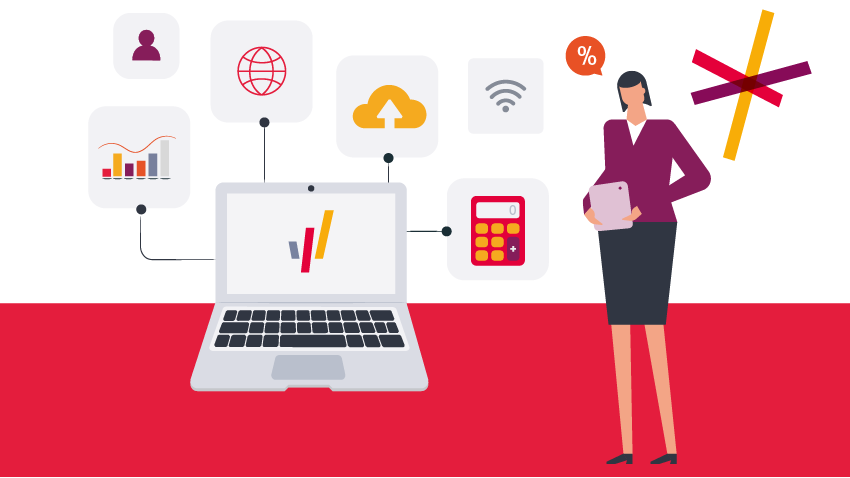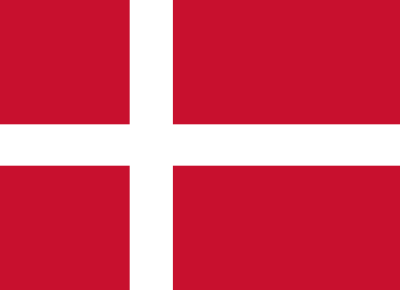How does technology affect payroll proficiency?
Managing payroll in Europe can be a daunting task. While juggling multiple contract types and wage packages, payroll professionals work hard to ensure that all employees are paid correctly and on time, every time. Errors might not only lead to dissatisfied co-workers, but also to extra manual work and hefty fines. Find out which European countries find a strong ally in payroll technology, and which still need to step up their digital games.

Scores by country

Specialised technology streamlines payroll
Automating payroll processes and integrating them through payroll technology and HR software is a sure-fire way to improve payroll efficiency. The most tech-savvy European countries, like Spain and Norway, report significant benefits resulting from streamlining their payroll with specialised tech. Next to minimal errors, time and cost savings and scalability, modern payroll technology enables them to accurately track and analyse data, which can inform better business decisions.
Tom Wouters, Chief Products Officer at SD Worx
Technology: top 3 countries
Ranked from most proficient to least proficient
 Spain
Spain
Traditionally, southern European countries are more inclined to develop their own systems and technology than northern European countries. That’s why more than half of Spanish companies still use on-premises software exclusively – especially larger enterprises with highly complex payroll structures. It’s an approach that bears fruit, as almost 7 out of 10 Spanish companies are confident that their technology makes it easier to gather and integrate payroll data, manage contracts and much more.
Doing everything in house can, however, be challenging at times. As many seasoned employees who know the ins and outs of companies’ on-premises software are nearing retirement, and the pandemic has made clear that those technologies impede continuity, there’s now a clear shift in the market. Almost 1 in 5 Spanish companies combine on-premises tech with cloud payroll software, and almost as many have already switched to SaaS completely. Having a payroll expert to lean on also helps companies face complexities and decrease risks. Almost 3 in 10 Spanish companies are assisted by external consultants for subprocesses such as pension and insurance administration, or tasks with high legal complexity.
 Norway
Norway
In Norway, the high level of digital maturity and availability of specialised tech is paying off for all payroll subprocesses. While many Norwegian companies trust only their own systems for data collection, almost all other payroll processes are typically carried out using external systems more often than in other European countries. As many high-quality solutions on the market offer excellent integration capabilities, companies are picking and choosing the software they need and adding it to their payroll tech stack.
This wide range of integrated solutions propels the transition to the cloud: 1 in 4 Norwegian companies combine on-premises software with cloud-based tech while almost 30% use cloud software alone. The accessibility, ease of use, frequent updates and support that come with cloud-based payroll technology are important benefits that contribute to a smoother payroll.
 Poland
Poland
Companies in Poland strongly indicate that using technology and software makes payroll processes easier and more efficient, saving them time and money. This sentiment about the positive impact of technology on payroll proficiency is strongest among HR, payroll and finance managers – especially in mid-size companies.
However, there is a longer way to go to get buy-in from CEOs, particularly in larger enterprises in Poland. To achieve this, HR and payroll managers could, for instance, focus on developing comprehensive business plans in collaboration with an expert partner to promote the time savings, efficiency gains and impact on the bottom line offered by tech solutions.
Technology: bottom 3 countries
Ranked from most proficient to least proficient
 France
France
Although French companies have smooth access to effective software solutions, once again it’s the country’s legislation labyrinth that pulls the results down. Frequent reshuffles in compliance requirements, post-payroll reports and social contribution regulations derail even the most brilliant payroll software on the market. Adopting changes at the speed of light is crucial for companies to drive efficiency gains when handling payroll. As data from time and workforce management must be reported, integration with payroll is highly complex.
When it comes to overcoming payroll legislation obstacles, tech is the biggest gamechanger for data collection and integration, administering payroll documents, tracking absences, and data interpretation. While most French companies use on-premises software alone, particularly large enterprises and public organisations, there’s a trend among SMEs and mid-market firms to quickly adopt SaaS solutions.
 Denmark
Denmark
As the digital transformation has been ongoing in the country for over two decades, Danish companies are far ahead of the game when it comes to automating payroll processes. 1 in 3 Danish companies have already moved to the cloud completely – that’s more than even the top-performing countries. But this digital maturity comes with a grim downside, clearly reflected in Denmark’s low scores: many companies have gathered an unmanageable mishmash of their own and external technologies for specific subprocesses, stacked one upon the other.
Without cleaning up the data landscape and preventing or connecting data silos, the infrastructure and integrations end up in spaghetti. That’s exactly what many Danish companies are struggling with – causing errors in 50% of payslips every month in some industries. Scrapping all those systems and switching to one central tool instead would significantly simplify payroll processing and enable companies to truly leverage the benefits of payroll technology.
 Germany
Germany
Low investments in digitalisation and automation, combined with a historical tendency to keep payroll processes in-house, have caused Germany to lag in terms of digital maturity. But the tide is turning: with a generational swap in the labour market and COVID highlighting the necessity of digitalisation, simplification and easy access to business processes, many companies are putting payroll automation on their priority lists.
Important efficiency gains, such as time and cost savings, are driving an increased interest in HR self-service tools and integrated all-in-one platforms covering modules such as payroll, expenses, time and talent management. Most companies are looking to cloud technologies and mobile applications for that. If these evolutions roll out smoothly, Germany will move up the payroll technology proficiency ladder in no time.